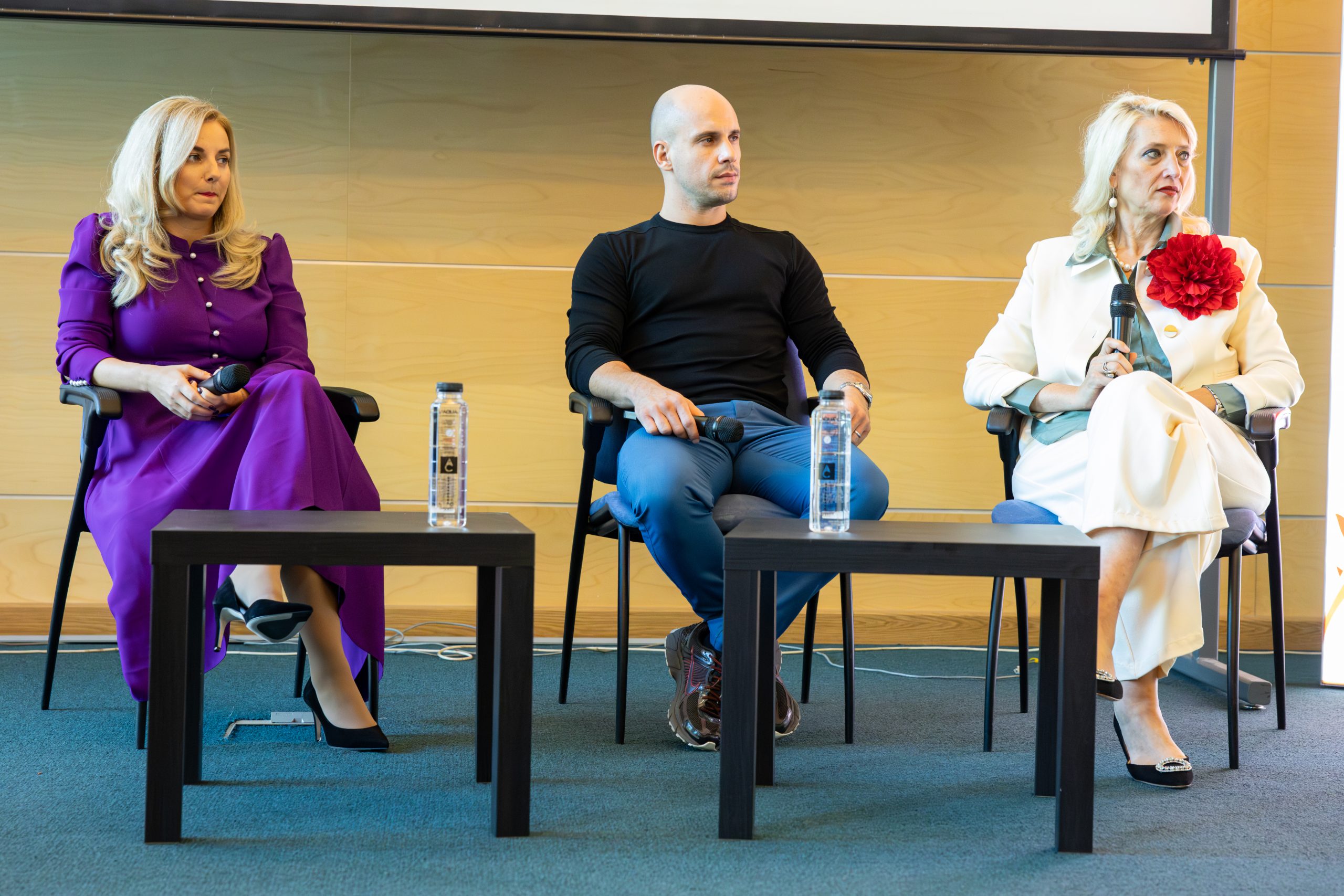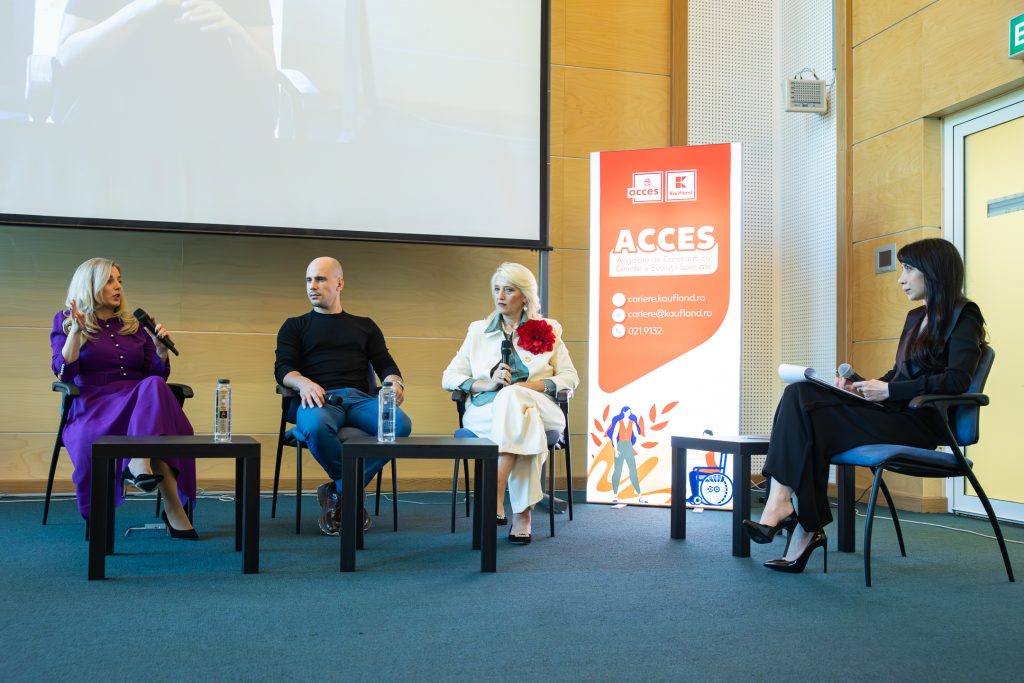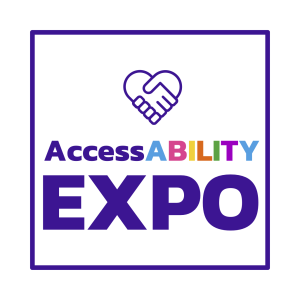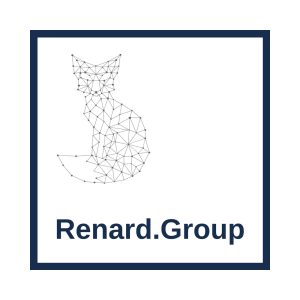
Neurodiversity in Romania: The Challenges and the Future
Neurodiversity in Romania continues to be a stigma. How can businesses be part of the solution to this problem?
As part of the inauguration of the first AccessABILITY Expo at the National Library in Bucharest, RAAD 2024 (Romanian Accessibility Awareness Day) featured a compelling discussion about neurodivergence and parenting in Romania. Moderated by Andreea Groenendijk-Deveau, a London-based social entrepreneur and CEO of Renard Group, the AccessABILITY Co-organiser, the panel brought together Adela Hanafi, President at Conil, a school for disabled and neurodivergent children, Lorenne Stefan, Member of the Disabilities Network Romania Team, HPE and Brad Palas Engineering Manager at Google.
Below are the highlights of the discussion:

- Offer flexible work schedules and environments: Accommodate the needs of neurodivergent employees by providing flexible schedules, such as allowing time for therapy or personal routines, and enabling remote work options to reduce sensory overload in the workplace.
- Provide targeted training and communication support: Invest in specific training programs that enhance communication skills, especially in areas where neurodivergent individuals may face challenges. Include workshops for all employees to raise awareness and foster a more inclusive environment for neurodiversity in Romania.
- Focus on individual strengths and appropriate job placement: Identify and place neurodivergent employees in roles that leverage their unique abilities, ensuring they are supported by a culture of empathy and understanding, where their specific needs are recognized and accommodated.
Social Inclusion for Neurodiversity
Adela began by addressing the issue of neurodiversity in Romania. “One autistic child is born every 52 births, an extremely high rate that should make us pause for thought and find solutions to integrate them.” This statistic sheds light on the urgency for systemic changes in how society supports these children and their families. For many parents, the fear of what will happen to their child after they are gone is ever-present. In Romania, the challenge lies in creating stable, supportive systems that allow disabled individuals to earn a fixed income while also encouraging them to enter the workforce. Adela remarked that parents with disabled children are in a hurry to retire them as soon as possible, to ensure they have some form of income for life. The speakers advocated for legislative changes and incentives to help young people with disabilities apply for jobs, ensuring that neurodivergence in Romania becomes part of the employment landscape. Despite the difficulties, parents like Adela celebrate even the smallest victories:Being a parent involves suffering. We want Olympians and high-achievers, but in the case of children with special needs, we have to be content with very small progress over a very long period of time. And we are happy with any progress.

Lorenne Stefan, Brad Palas, Adela Hanafi, and moderator Andreea Groenendijk-Deveau
Flexible Workplaces
Lorenne Stefan spoke from both a personal and professional perspective as the mother of a neurodivergent child and a member of the Disabilities Network Romania Team for HPE. For parents with neurodivergent children, flexibility at work is crucial. Lorenne noted: “The Disabilities Network Romania wants to offer an even more flexible schedule for mothers who need it because they need to take their child to therapy or school. It’s about a global collaboration between legislation and HR in Romania. Nothing happens overnight.” Her experiences as a mother also highlight the resilience of parents with neurodivergent children, who are often judged in Romania. Lorenne shared, “Many times people ask me if I believe my boy, who has ADHD and autism, will be able to work, and I say, Yes, because he is capable!” Her statement underscores the need for society to see neurodivergence as a difference rather than a deficiency. “It’s important to stop thinking about it as a disease. Autism is not a disease – it’s not as if they have gastritis or an ulcer,” she added.Workplace Inclusion for Neurodiversity
The conversation then shifted to workplace inclusion for neurodivergent adults. Brad Palas spoke about the benefits neurodivergent individuals bring to innovation:It’s pretty hard to innovate if you think the same as everybody elsehe said, pointing out that neurodivergent employees often offer unique perspectives that can drive creativity. Brad further emphasised the numerous examples of high-profile neurodivergent people who self-declare or have a medical diagnosis, arguing there are no reasons why a company, even an SME, wouldn’t want to hire a neurodivergent person. He also argued, citing this Harvard Business Review article, that neurodiversity could give Romanian businesses an advantage if properly integrated. At Google, inclusivity is embedded into their operations where everyone is treated the same way, whether they self-disclose as neurodivergent or not. Everyone receives the same training and opportunities for support. They also offer specific communication training, which may help neurodivergent people with social interactions but also raise awareness of neurodiversity in Romania among neurotypical employees. This approach helps not only neurodivergent employees but also creates a more inclusive environment for all. Adela emphasized that while neurodivergent individuals may need certain accommodations, they can thrive in the workplace if given the right support. “We need to put the right person in the right place and find the abilities in every individual,” she said. This process requires a willingness from employers and neurotypical employees to understand and adapt, as well as from neurodivergent employees to communicate their needs. Working from home can be a beneficial arrangement for some neurodivergent individuals, but Adela cautioned that it’s important they don’t become too isolated. “Autistic people feel more comfortable working from home because it is a familiar environment. But it’s important they also interact with others to have a normal life,” she noted.
A Brighter Future for Neurodivergent Individuals
Lorenne ended the discussion with a powerful reminder:When they are hired, they should be hired as if there is no problem because, in fact, there is no problem. Neurodivergence is just a different neurological condition.As she and the other speakers made clear, building a more inclusive society starts with understanding, empathy, and a commitment to seeing beyond differences. Brad concluded by highlighting the emotional toll on neurodivergent employees who feel the need to mask their differences: “Many can perform well masking their neurodivergence, but the emotional cost is extremely high.” By fostering a more supportive environment, both at home and in the workplace, we can ensure that neurodiversity in Romania is embraced, giving neurodivergent individuals the opportunity to thrive
Organisers
Sponsors
-

- Gold Sponsor
-

- Silver Sponsor
-

- Strategic Sponsor
-

- In-Kind Sponsor
Supporters

Strategic Partners

Media Partners








